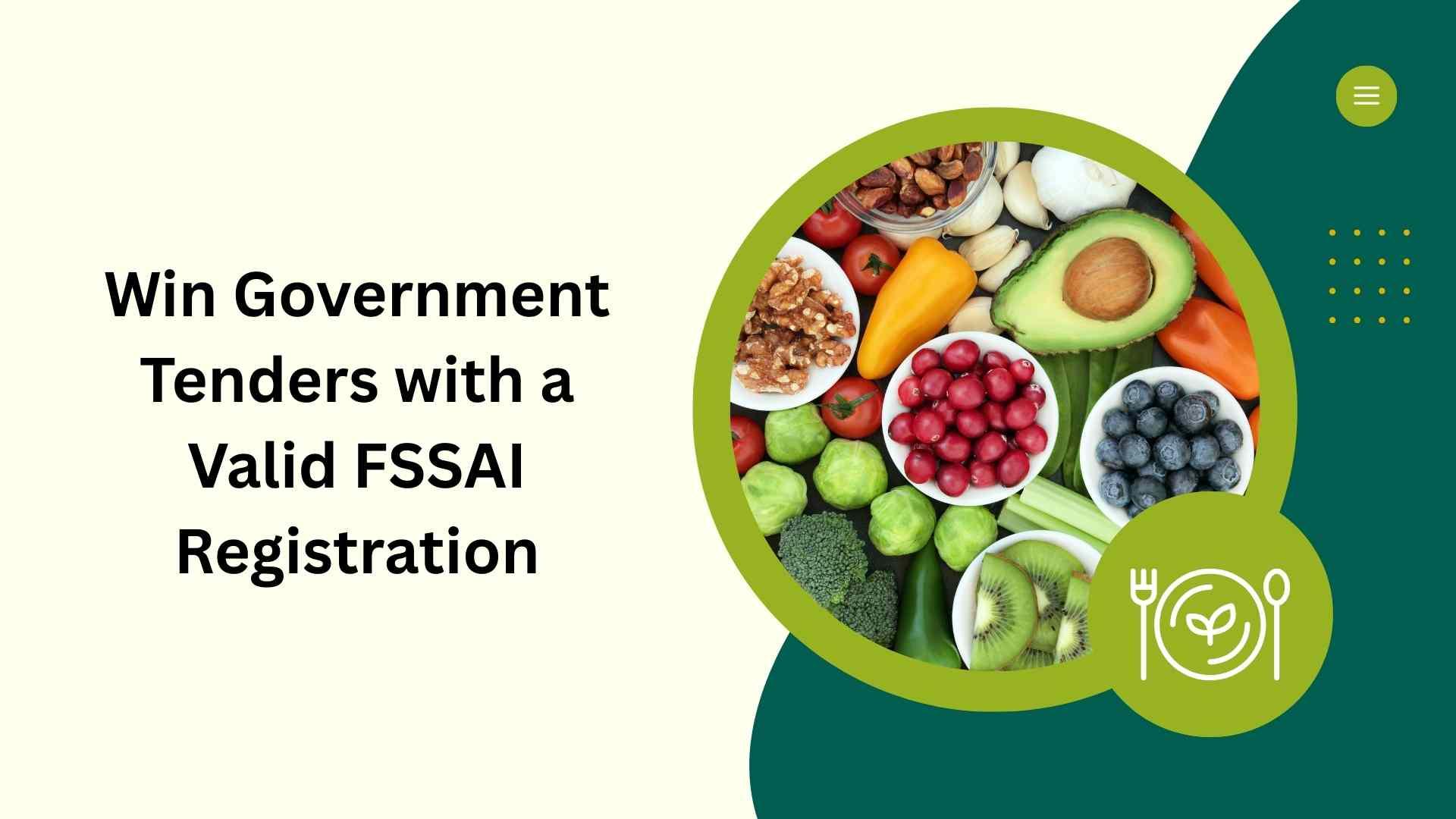In India’s rapidly growing food industry, compliance and credibility are vital. For food-related businesses, FSSAI Registration is not just a legal requirement but also a gateway to opportunities, especially in winning lucrative government tenders. Whether you are a food manufacturer, distributor, or small vendor, having a valid FSSAI license can significantly enhance your chances of securing government contracts. This article explains why FSSAI registration is important for government tenders, the benefits it brings, and how you can apply for it easily.
Understanding FSSAI Registration
What is FSSAI?
The Food Safety and Standards Authority of India (FSSAI) is the regulatory body that governs food safety standards in the country. It ensures that food businesses comply with health and safety norms, thereby protecting consumer health.
Types of FSSAI Licenses
-
Basic Registration: For small businesses with a turnover of up to ₹12 lakh.
-
State License: For medium-sized businesses with turnover between ₹12 lakh and ₹20 crore.
-
Central License: For large enterprises with a turnover above ₹20 crore or those engaged in inter-state supply.
Why FSSAI Registration Matters for Government Tenders
Mandatory Compliance
Most government food supply tenders specifically require bidders to have a valid FSSAI license. Without it, your application may be rejected outright.
Proof of Credibility
A valid FSSAI license demonstrates that your business adheres to quality and safety standards, which builds trust with government agencies.
Competitive Advantage
Many businesses fail to qualify for tenders due to a lack of compliance. Having an FSSAI registration immediately places you ahead of competitors.
Legal Protection
FSSAI registration ensures that your business operations are legally compliant, protecting you from fines, penalties, and rejections in official dealings.
Benefits of FSSAI Registration Beyond Tenders
Increased Consumer Confidence
Consumers trust businesses with a visible FSSAI license, knowing that the food they consume meets safety standards.
Expansion Opportunities
Registered businesses can expand across states or supply to government institutions, opening up larger markets.
Business Growth
FSSAI-registered businesses are eligible for bank loans, subsidies, and investor interest, further fueling growth.
Brand Value
An FSSAI license enhances your brand image, showing that your business prioritizes health and safety.
Step-by-Step Guide to Apply for FSSAI Registration
Step 1: Access the FSSAI Portal
Go to the official FSSAI registration website to begin your application.
Step 2: Provide Business Information
Fill in the form with your name, business details, food category, and upload necessary documents such as your PAN card.
Step 3: Submit Your Application
Carefully review all the details before applying online.
Step 4: Pay the Applicable Fee
Make the required payment through the portal based on your license type (Basic, State, or Central).
Step 5: Complete OTP Verification
Enter the OTP sent to your registered mobile number or email to validate your application.
Step 6: Premises Inspection (If Needed)
In some cases, FSSAI officials may conduct a site visit to check compliance before approval.
Step 7: Download Your License
Once your application is approved, your FSSAI license will be issued online. You can log in to the portal and download it directly.
How FSSAI Registration Helps in Winning Tenders
Ensures Eligibility
Most government tenders in the food sector explicitly require FSSAI registration details. Without it, your bid will not even be considered.
Improves Trustworthiness
Tender evaluators look for reliable vendors. An FSSAI license shows you follow legal and hygienic practices, making your bid stronger.
Streamlines Approval
Having FSSAI certification speeds up documentation review, as it acts as pre-verified proof of your business standards.
Opens Bigger Opportunities
Many large-scale catering, mid-day meal schemes, and hospital supply tenders only award contracts to FSSAI-registered vendors.
Tips to Win Government Tenders with FSSAI Registration
Keep Your License Updated
Ensure your FSSAI license is valid and renewed on time. Expired licenses may lead to disqualification.
Maintain Compliance
Follow food safety practices as per FSSAI guidelines. Non-compliance during inspections can lead to cancellation of tenders.
Highlight Your Registration in Proposals
When submitting tender bids, clearly mention your FSSAI license number to showcase compliance.
Combine with Other Registrations
Along with FSSAI, having Udyam Registration, GST registration, and ISO certification increases your chances of winning government contracts.
Common Mistakes to Avoid
Submitting Wrong Documents
Ensure you upload the correct and updated documents to avoid delays in approval.
Ignoring License Category
Applying for the wrong license type can lead to rejection. Always select the appropriate license based on your turnover.
Delayed Renewals
Not renewing the license on time can make your tender application invalid.
Future of FSSAI in Government Tenders
With India’s growing emphasis on food safety and digital governance, FSSAI compliance is becoming more crucial. In the coming years, advanced systems like AI-driven inspections, e-verification, and DigiLocker integration will make compliance faster and more transparent. Businesses that stay compliant will enjoy long-term advantages in both government and private sectors.
Also Read: FSSAI Registration Renewal Process in India
Conclusion
For businesses in the food sector, FSSAI registration is more than just a legal requirement—it’s a powerful tool for growth. A valid FSSAI license not only ensures compliance but also opens the doors to lucrative government tenders. By registering online, keeping documents ready, and staying compliant, food businesses can easily qualify for contracts and expand their operations. If you want to secure government contracts and grow your food business, getting FSSAI registration should be your first step. It’s the key to credibility, trust, and long-term success in India’s competitive food industry.



